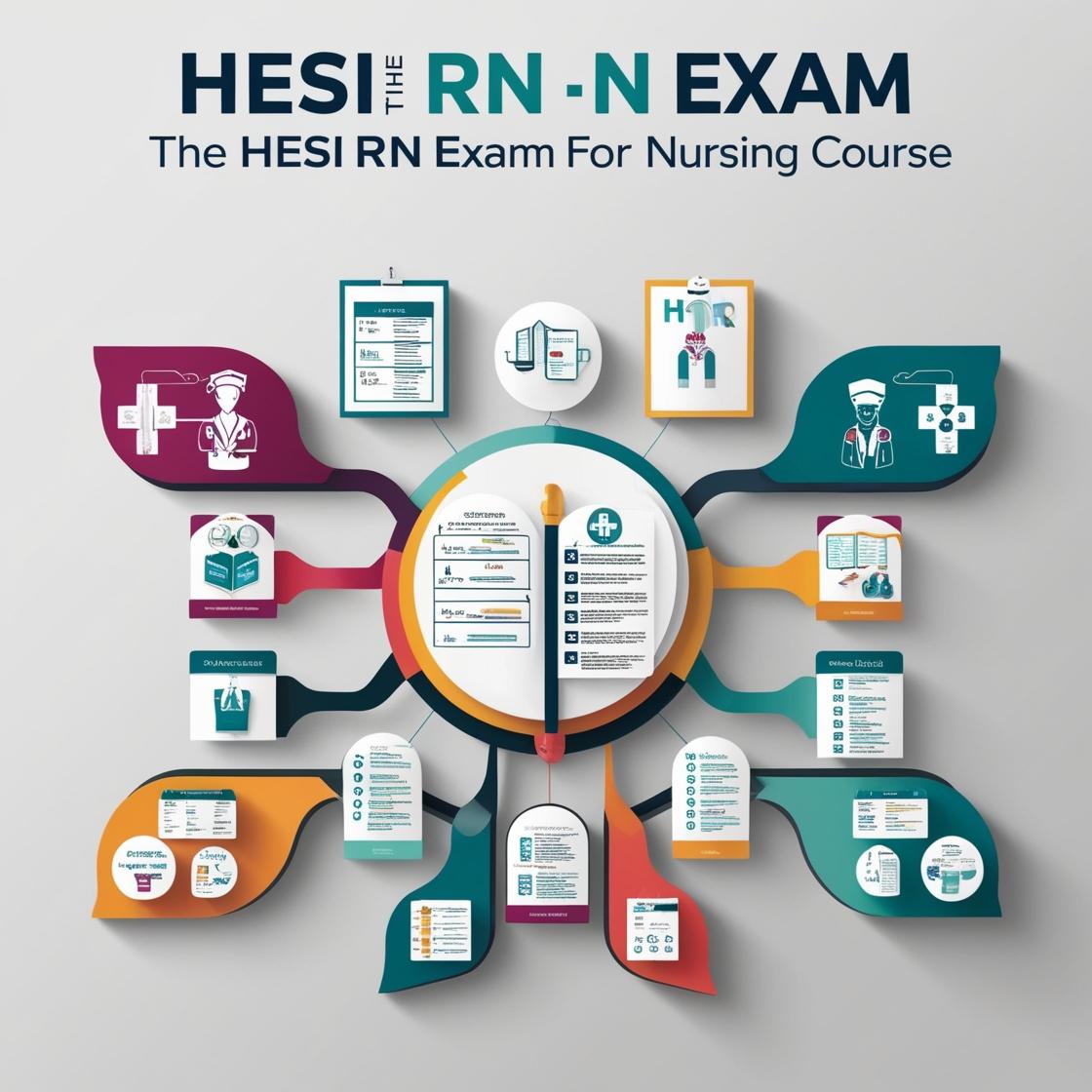HESI RN
Maternity HESI 2023 Quizlet
1. A client who is receiving oxytocin to augment early labor begins to experience tachysystolic tetanic contractions with variable fetal heart decelerations. Which action should the nurse implement?
- A. Turn off the oxytocin infusion.
- B. Reposition the fetal monitor transducers.
- C. Decrease the rate of the oxytocin infusion.
- D. Alert the charge nurse about the patient's condition.
Correct answer: A
Rationale: When a client experiences tachysystolic tetanic contractions with variable fetal heart decelerations, indicating uterine hyperstimulation, the priority action is to turn off the oxytocin infusion. This step aims to reduce uterine activity, which can compromise fetal oxygenation and lead to adverse outcomes.
2. A pregnant client receives Rho(D) immune globulin after an amniocentesis. The day following, she reports a temperature of 99.8°F (37.67°C). Which action should the nurse implement?
- A. Schedule a visit with the healthcare provider today.
- B. Verify the compatibility of the administered Rho(D) immune globulin.
- C. Encourage the client to increase her intake of oral fluids.
- D. Instruct the client to maintain bedrest for 24 hours.
Correct answer: C
Rationale: A mild increase in temperature post-amniocentesis is common, and encouraging the client to increase oral fluid intake is the appropriate action. Increasing fluid intake can help reduce mild fever, promote recovery, and prevent dehydration. It is important for the nurse to educate the client on the importance of staying hydrated to support her overall well-being during this time.
3. An unlicensed assistive personnel (UAP) reports to the charge nurse that a client who delivered a 7-pound infant 12 hours ago is reporting a severe headache. The client’s blood pressure is 110/70 mmHg, respiratory rate is 18 breaths/min, heart rate is 74 beats/min, and temperature is 98.6°F (37°C). What action should the charge nurse implement first?
- A. Notify the healthcare provider of the assessment findings.
- B. Administer analgesics as prescribed.
- C. Increase the client’s fluid intake.
- D. Monitor the client’s vital signs every hour.
Correct answer: A
Rationale: A severe headache post-delivery could indicate a serious condition such as preeclampsia or a spinal headache, which requires immediate medical attention. Notifying the healthcare provider of the assessment findings allows for prompt evaluation and appropriate management of the client's condition.
4. When teaching a gravid client how to perform kick (fetal movement) counts, which instruction should the nurse include?
- A. If 10 kicks are not felt within one hour, drink orange juice and count for another hour.
- B. Count the movements once daily, for one hour, before breakfast.
- C. Avoid caffeinated drinks for 24 hours before conducting the kick test.
- D. Exercise for 15 minutes before starting the counting to help increase fetal movement.
Correct answer: A
Rationale: When teaching a gravid client about kick (fetal movement) counts, the nurse should instruct them that if 10 kicks are not felt within one hour, they should drink orange juice and continue counting for another hour. This instruction is crucial as a drop in fetal movements could indicate potential issues with fetal well-being, and taking action such as rechecking after food intake is recommended to monitor the situation closely.
5. After breastfeeding for 10 minutes at each breast, a new mother calls the nurse to the postpartum room to help change the newborn's diaper. As the mother begins the diaper change, the newborn spits up the breast milk. What action should the nurse implement first?
- A. Wipe away the spit-up and assist the mother with the diaper change.
- B. Sit the newborn upright and burp by rubbing or patting the upper back.
- C. Place the newborn in a position with the head lower than the feet.
- D. Turn the newborn to the side and use bulb suction for the mouth and nares.
Correct answer: B
Rationale: After a newborn spits up breast milk following feeding, the priority action for the nurse is to sit the newborn upright and burp by rubbing or patting the upper back. This position helps release trapped air and reduces the likelihood of further spit-up or aspiration. It is essential to address this first to prevent potential complications and ensure the newborn's comfort and safety.

Access More Features
HESI RN Basic
$69.99/ 30 days
- 50,000 Questions with answers
- All HESI courses Coverage
- 30 days access
HESI RN Premium
$149.99/ 90 days
- 50,000 Questions with answers
- All HESI courses Coverage
- 90 days access
